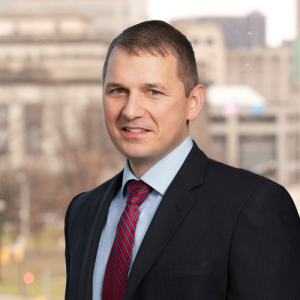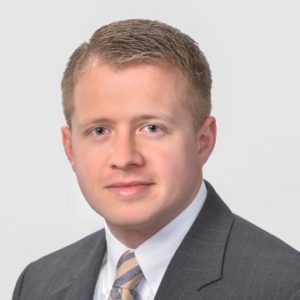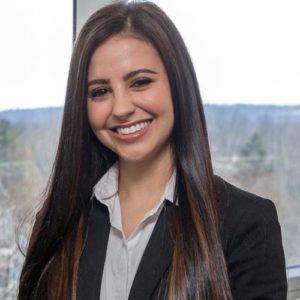Health Regulatory Update: Provider Compensation Trends
An Interview with Alex Krause and Autumn Warden from the American Association of Provider Compensation Professionals (AAPCP)
In this episode of Hall Render’s “Health Regulatory Update,” Joe Wolfe interviewed two key leaders of the AAPCP about the organization and trends in provider compensation. The AAPCP is a nonprofit organization that brings together professional engaged in the administration, alignment, regulatory and strategy processes for organizations managing financial relationships with providers. AAPCP’s members advise and lead organizations across the country on provider compensation, contracting, planning, recruitment, retention, strategy, and valuation. The Association is open to individuals in health systems, medical groups, and other health care organizations who work in these areas. If you are a professional looking for more information about the AAPCP and its upcoming conference in Indianapolis on May 5-6, please check out their website at providercompensation.org.
Podcast Participants


Alexander Krouse
Legal Counsel, Parkview Health
Board Member, American Association of Provider Compensation Professionals (AAPCP)

Autumn Warden
Director of Business Development, Memorial Health System
Board Member, American Association of Provider Compensation Professionals (AAPCP)
Joe Wolfe: Hello, and welcome to Hall Render’s Practical Solutions Podcast and healthcare regulatory update. I’m Joe Wolfe, an attorney with Hall Render. We are the largest healthcare focused law firm in the country, and today we’re discussing physician compensation hot topics, and the American Association of Provider Compensation Professionals, or the AAPCP as we’ll use that term throughout the podcast. That’s a new industry trade association that has been very active over the last couple of years. I lead Hall Render’s healthcare regulatory practice group, and that covers our advocacy, compliance, fraud and abuse and litigation service lines. Today with me, I have Alexander Krouse, the Associate General Counsel for Provider Arrangements for Parkview Health in Fort Wayne, Indiana. And also Autumn Warden, the Director of Business Operations & Physician Compensation for Memorial Health System in Marietta, Ohio. Both are physician contracting and compensation experts, and both are heavily involved in the AAPCP. Alex and Autumn, can you please introduce yourselves.
Autumn Warden: My name is Autumn Warden, Director of Business Operations & Physician Compensation here in Marietta, Ohio. I have been in the provider compensation industry for almost six years now. I actually started in provider recruitment for about a year, and at the time there wasn’t significant focus or resources for provider compensation and contracting oversight. I essentially just became a self-starter and learned as much as I could about the industry on my own. Tapped into as many resources as I could, although at the time there was very few, but have really just grown the department within my own organization. I’ve been fortunate to have a lot of support there and have also been able to really grow as an industry expert for my organization internally and have also been able to keep up.
Alexander Krouse: Absolutely. Thanks, Autumn. I’m Alex Krouse, and I work for Parkview Health. I’ve been in charge of provider contracting and compensation for the past six years. For me it was a similar story, at least when I first started here, I was the legal counterpart to our finance team for provider compensation services and that VP of finance left.They said, “Hey, Alex, you’re the only one that knows about this.” So I’ve been doing it for about six years, prior to that, I was in private practice, primarily focused on Stark Law, physician compensation. That’s the area where I’ve spent my career.
Joe Wolfe: Great. Thanks for those intros. I’m excited about this podcast, not only to get a chance to talk to Alex and Autumn again, but because this is a unique space where the AAPCP sits. It brings together individuals involved in the strategic valuation, legal operational, and financial aspects of provider compensation. For the first time, I think it’s creating a community around those issues to allow for education and skill development and resources that are really necessary for provider professionals in the compensation space to become successful. As I work with healthcare organizations all across the country on provider arrangements and provider compensation strategies, not only on the model side, but also on processes for implementation and documentation of fair market value, I often ask the question, where could our people go to get this training to learn about different approaches to valuation and compensation?
Joe Wolfe: The AAPCP is one place that I look to right away and often recommend. We’re going to learn a bit about the organization and also some trends in compensation. So I have a few questions for Alex and Autumn, and I think I’ll start with you, Alex. Could you give some background on the history of the AAPCP and where the organization is today?
Alexander Krouse: Yeah. Happy to. There’s a long story to it, but knowing this is the podcast I’ll give the abbreviated version. Many of us, Autumn and myself, we’ve known each other probably for three years now or close to it. Others within the association that have been more involved, we’ve been creating this network over the past few years and even some before that. I remember talking with others and we sat there and said, “We’re all in these different associations. It’d be nice if there was a space for the work that we do.” We’ve got accountants, we’ve got operation leaders, we’ve got attorneys like myself, we’ve got those that have worked in HR, worked in recruitment. And so from a skill set and a department standpoint, there’s a lot of variability.
Alexander Krouse: I think after enough people asked that question, we sat down and said, “Hey, let’s start this association that’s more focused on an area, a body of work and a body of knowledge, as opposed to a profession specific.” And so that’s really where it started, very just people like Autumn and myself coming together saying, “Hey, we’ll put in the time to be able to grow this.” We were really actually hoping to more formally launch in early 2020 by getting a group of us together, but because of COVID, we had to cancel that. And then we just slowly grew from there. Most of us have certainly met via video. I’ve not met Autumn in person, but we will at the conference in May here in Indianapolis.
Alexander Krouse: So that’s how it started and it’s continued to build. Where we are today, we have individuals, Joe, such as yourself, myself, and others that are in this association as members, a few hundred individuals. So we’ve grown to that level. There are individuals that work in private practice medical groups, that are in health systems, private equity, law firms, consulting firms, accounting firms, you name it. If you work in provider compensation, we welcome you as a member, that’s the community. As for just healthcare organizations, we have about 110 now at this point, healthcare organizations across the country that are really represented.
Alexander Krouse: Some are in individual county hospitals where that person that’s involved is doing 20 different things. Some of them are organizations with a 100 plus hospitals, about our average healthcare organization, probably about Parkview’s size, probably around two billion with around eight or nine hospitals and 1,000 providers. So a lot of variability in there, but it’s great to have that group together.
Joe Wolfe: Great. Thanks, Alex. Autumn, I’ll direct the second question to you. How has the AAPCP helped you in the work you do for your health system?
Autumn Warden: That’s a great question. To put it briefly, it’s provided resources that are so needed in this environment. Talking about the community that we’ve established, like Alex was saying, it’s not just resources as in getting access to a policy or some guidance around your policy or when you’re doing your commercial reasonableness document and what that should generally look like, it goes beyond that is so needed and just is almost invaluable. It’s being able to call someone like Alex that works at another organization that you’ve established a relationship with through the AAPCP. And you can ask, this is my situation and most of the time they’re going to say, “Oh yeah, I’ve dealt with that before and this is how we handled it. This is what worked, this was what our barriers were.”
Autumn Warden: What’s been so common in the provider compensation industry is, we work with third parties and they’re great. We have great relationships with them, but most of the time, they’re not within the four walls of your hospital. They’re not sitting in the meetings with these physicians, they’re not managing relationships and managing your provider engagement initiatives as most health systems are really focused on right now. And they’re not toe to toe with your physician leadership and your operations team and your in house counsel. So when you have the community that is involved in operations, or worked closely with finance and physician leaders, and you have that community outside of your health system to help guide you, it really helps this industry propel to the next level.
Autumn Warden: That’s what’s been missing. It’s why we’ve worked so hard and why we will continue to work so hard to grow this association. We have the external experts and resources and will always need them,ut it’s the internal work and all the things that go into doing this job and doing it well, that we are really honing in on. It’s your internal experts and how we can support them.
Joe Wolfe: Well, thanks, Autumn. Alex, you’ve mentioned events, I know you have an upcoming conference in Indianapolis. Could you provide us some information on that?
Alexander Krouse: Yeah. We do have a broad education platform that we’re building. We really are looking at virtual accessibility to training new employees that are working in this area and creating modules. For, if you’ve got somebody that’s new to your staff. We all know that for most of us that are working right now, we’ve all been self-taught pretty much. We’re really trying to create that platform where there’s more formality of, “Hey, if you’re new to this area, here’s the introductory materials that you need to be able to speak the lingo, to think about things, to understand things.” That’ll be certainly taught by faculty across the country. I know Joe, you’re going to be helping out with that as well. We’re looking into developing a credential, certainly people that want to build a career where they have expertise in this area, and even if you’re not directly managing this area.
Alexander Krouse: Let’s say you do move further up in operations or in finance, and you’re the COO of a medical group, quite frankly, you need an in depth understanding of these issues, because really at the end of the day, it’s all about alignment. How do we do that? How do we appropriately do that? What works best? So that’s the broader platform, but a part of that is certainly in person conferences, which is just going to be invaluable to our members. So on May 5th and May 6th, the conference is going to be in downtown Indianapolis. We’re at a hotel venue, a historic venue there, right in the heart of Indy. I used to live there myself, so it’s in a great spot. We have a full first day of not only lecture style, coursework or events, but also opportunities where we’re going to be doing live polling of the audience.
Alexander Krouse: We’re going to be breaking into groups, so we can have more discussions, network and get to know one another. We will have an evening event with a cocktail hour and all of that. And then the next day, we’re going to have a morning where we’re talking about some cutting edge issues and then more group discussion. The one thing that I think is unique about our conference is that for all of our sessions, we have an in-house person that works in a healthcare organization, as well as some external experts. These are individuals from across all sorts of healthcare organizations, consulting firms, law firms. So there’s a lot of diversity of, I think, viewpoint there, which is something that you really don’t see in other conferences that work in this space. So we’re really excited about it and certainly if anybody is interested, you can go to our website, providercompensation.org and get more information.
Joe Wolfe: Thank, Alex. I think this is a question for both Autumn and Alex. What do you think will be the biggest issues in provider compensation in the near future?
Autumn Warden: I believe that the biggest issues in provider compensation in the near future will be the delicate balance between earnings based on fee for service compensation arrangements, and value based arrangements. I say it’s a delicate balance because it really is a balance of what your payer contracts look like and how you are aligning those to your compensation plans. And with the majority of health systems, payer contracts are still primarily fee for service, although there are significant initiatives around value-based initiatives. When your hospital’s reimbursement is dependent upon fee for service, you still have to make that a significant proponent of your compensation design.
Autumn Warden: For my organization specifically, we’re really trying to introduce value-based initiatives, while also maintaining the historical fee for service arrangements. That way if a significant shift starts to become more obvious, then we have the capability to shift the comp model as we need to. But all health systems are doing it differently right now. It’s just going to be interesting to see when and if the shift happens, how far we’ll have to make significant adjustments to our compensation plans.
Joe Wolfe: Great. Thanks Autumn. Alex, your thoughts?
Alexander Krouse: I 100% agree with Autumn, that’s going to be a major change management issue that I think is going to take us longer than a decade. That is going to be a major issue. I think one of the more pressing issues, is I think we’ve come from this historic practice of an overreliance on survey data. I think a lot of organizations have gotten into that. I think with the recent Stark final rule, some of the commentary and that not that surveys are bad, but it’s clearly not, Hey, surveys are everything. So I think organizations have to really rethink how they’re valuing physician services. I think in part that’s because of some of that commentary, I also think in part, because the surveys due to COVID, the physician fee schedule changes, the surveys aren’t going to be very helpful.
Alexander Krouse: I could see somebody making the argument, is it even commercially reasonable to use these surveys to set income levels given some of the anomalies within the data? So I’ll say this, over the next three to five years, organizations are really going to have to think about the way that they’re establishing compensation within their groups, because I think post 2020 for a lot of reasons, not just COVID.
Joe Wolfe: I would echo your thoughts there and I appreciate your answers to my questions. Looking at this year and the near future, we’ve experienced several years of reform now. We’ve had some technical updates to the Stark and Kickback rules, new guidance and clarifications to fair market value and commercial reasonableness and to the volume and value standard. We have these new value-based exceptions and safe harbors that drive change, but all this reform has been coupled with other market challenges and disruptors, just like the two of you just talked about. The COVID-19 productivity compensation model and staffing disruptions, the Medicare fee schedule issues, disruptions to the market survey data, and I do think we’ll see continued enforcement. It’s a disruptive period of time, but there’s a lot of opportunity to revisit compensation in my mind, like you the two of you are pointing to.
Joe Wolfe: I think healthcare organizations are going to have to engage their key stakeholders, get them to the table, including legal compliance, finance, their contracting personnel, and they really need to look at these changes, where their organization sits and where they want to go looking forward. Are they going to innovate their models? How are they going to operationalize these changes? And compensation is right at the heart of all of it. And so what you’re doing there at the AAPCP and bringing together people in this disruptive period and allowing them to collaborate and to use your platform to pose questions to each other on your website, if they’re members. I applaud you for what you’re doing. So it’s going to be a very interesting, I think Alex, you said we have a decade of this in front of us.
Joe Wolfe: I agree that it’s going to be a long haul, but there’s a lot of work to do and opportunities to engage. So I appreciate the answers to your questions. For our listeners, if you would like to learn more about the AAPCP please reach out to Alex or Autumn. Again, Alex mentioned their website is providercompensation.org. We’ll also make their information available on the podcast platform, so you can email them directly. Thank you for joining us today. We hope that you tune in for future podcasts. Please remember that the views expressed in this podcast are those of the participants only, and do not constitute legal advice. Take care.
